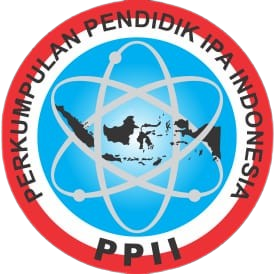Urgensi Mata Rantai Keilmuan dalam Pendidikan Islam di Era AI
DOI:
https://doi.org/10.33752/discovery.v10i1.8700Keywords:
Islamic Education, Sanad, Artificial Intelligence, AI, Technology Integration, Educational EthicsAbstract
This study explores the urgency of the chain of knowledge transmission (sanad) in Islamic education in the era of artificial intelligence (AI). Sanad, as an authoritative mechanism for transmitting knowledge, remains relevant and essential in preserving the authenticity and integrity of Islamic teachings. The integration of AI in Islamic education offers opportunities to enhance accessibility and personalized learning but also presents challenges related to potential misinformation and the degradation of human interaction. This research employs a qualitative approach with a focus on a comprehensive literature review to analyze and synthesize relevant sources. The findings indicate that AI can be utilized to strengthen rather than replace the role of teachers and the sanad system. Therefore, this study recommends the development of a comprehensive framework to guide the integration of AI in Islamic education, emphasizing ethics, transparency, and accountability. This framework should also include guidelines for curriculum development, teacher training, and students’ digital literacy. By doing so, Islamic education can bridge the gap between tradition and technology, preparing young Muslim generations to face global challenges without compromising the core values of the sanad system.
Downloads
References
Ahmed, Z., Shanto, S. S., Rime, M. H. K., Morol, M. K., Fahad, N., Hossen, M. J., & Abdullah-Al-Jubair, M. (2024). The Generative AI Landscape in Education: Mapping the Terrain of Opportunities, Challenges and Student Perception. IEEE Access.
Al-Attas, M. N. (1980). The concept of education in Islam. Muslim Youth Movement of Malaysia Kuala Lumpur.
Al Hamidi, M. F., Fitriyah, A. W., Yaturrochmah, N., Istiqomah, F. Z., & Putra, M. D. (2024). Artificial Intelligence Dan Implikasinya Terhadap Pengkajian Studi Islam Pada Generasi Z. Jurnal Tarbiyatuna: Jurnal Kajian Pendidikan, Pemikiran Dan Pengembangan Pendidikan Islam, 5(1), 1–18.
Alim, A., & Al-Hamat, A. (2021). Pembinaan Akhlak Menurut Syekh Az-Zarnuji Dalam Kitab Ta’limul Muta’allim. Rayah Al-Islam, 5(01), 21–39.
Almarzuqi, M. F. (2023). Kontekstualisasi pemikiran Pendidikan Islam dalam mewujudkan karakter budaya Religius dan moderasi Agama di Era Society 5.0 9: Studi pemikiran Gus Mus. Universitas Islam Negeri Maulana Malik Ibrahim.
Ateeq, A., Alzoraiki, M., Milhem, M., & Ateeq, R. A. (2024). Artificial intelligence in education: implications for academic integrity and the shift toward holistic assessment. Frontiers in Education, 9, 1470979.
Benzie, A., & Montasari, R. (2022). Artificial intelligence and the spread of mis-and disinformation. In Artificial intelligence and national security (pp. 1–18). Springer.
Berkey, J. P. (2014). The transmission of knowledge in medieval Cairo: A social history of Islamic education.
Boell, S. K., & Cecez-Kecmanovic, D. (2015). On being ‘systematic’in literature reviews in IS. Journal of Information Technology, 30(2), 161–173.
Brown, J. A. C. (2014). Misquoting Muhammad: the challenge and choices of interpreting the Prophet’s legacy. Oneworld London.
Chaudhary, N., Jain, P., & Sharma, C. (2025). From Traditional to Technological: The Evolving Role of Teachers in the AI-Powered Classroom. In Fostering Teacher Skills and Critical Thinking in Modern Education (pp. 79–108). IGI Global Scientific Publishing.
Chen, L., Chen, P., & Lin, Z. (2020). Artificial intelligence in education: A review. Ieee Access, 8, 75264–75278.
Chen, X., Zou, D., Xie, H., & Wang, F. L. (2021). Past, present, and future of smart learning: a topic-based bibliometric analysis. International Journal of Educational Technology in Higher Education, 18(1), 2.
Coelho, M., & Menezes, I. (2021). University social responsibility, service learning, and students’ personal, professional, and civic education. Frontiers in Psychology, 12, 617300.
Creswell, J. W., & Poth, C. N. (2016). Qualitative inquiry and research design: Choosing among five approaches. Sage publications.
Felix, C. V. (2020). The role of the teacher and AI in education. In International perspectives on the role of technology in humanizing higher education (pp. 33–48). Emerald Publishing Limited.
Fitria, T. N. (2023). The use of artificial intelligence in education (AIED): can AI replace the teacher’s role? Epigram, 20(2), 165–187.
Goleman, D. (1995). Emotional intelligence bantam books. New York.
Gurl, E. (2017). SWOT analysis: A theoretical review.
Haider, A., & Jalal, S. (2018). Good teacher and teaching through the lens of students. International Journal of Research, 5(7), 1395–1409.
Hallaq, W. B. (2009). Sharī’a: theory, practice, transformations. Cambridge University Press.
Hasanah, N. A. (2024). Opportunities and Challenges for Islamic Education in Society 5.0. Islam Transformatif: Journal of Islamic Studies, 8(2), 264–281.
Holmes, W., Bialik, M., & Fadel, C. (2019). Artificial intelligence in education promises and implications for teaching and learning. Center for Curriculum Redesign.
Khosravi, H., Shum, S. B., Chen, G., Conati, C., Tsai, Y.-S., Kay, J., Knight, S., Martinez-Maldonado, R., Sadiq, S., & Gašević, D. (2022). Explainable artificial intelligence in education. Computers and Education: Artificial Intelligence, 3, 100074.
Luckin, R. (2018). Machine Learning and Human Intelligence. The future of education for the 21st century. UCL institute of education press.
Maidugu, U. A., & Isah, A. T. (2024). Islamic Education and its Value: A Vital Means for the Formation National Character. Bulletin of Islamic Research, 2(4), 725–744.
Monteith, S., Glenn, T., Geddes, J. R., Whybrow, P. C., Achtyes, E., & Bauer, M. (2024). Artificial intelligence and increasing misinformation. The British Journal of Psychiatry, 224(2), 33–35.
Muhammad, K. H. H. (2019). Islam tradisional yang terus bergerak. IRCiSoD.
Muntaqo, L. (2018). Ijazah Sanad Tradition in Pesantren, an Effort to Maintain the Authenticity of Islamic Teachings (Study in Pesantren Maslakul Huda, Kajen, Pati, Central Java). Manarul Qur’an: Jurnal Ilmiah Studi Islam, 18(1), 31–51.
Mutaqin, Z. Z., Mulyawati, H., Tsurayya, R. V., & Inayatussahara, N. A. (2023). Seeking Baraka: Transformation of Ngaji from Virtual to Conventional among Gen-Xers. Wawasan: Jurnal Ilmiah Agama Dan Sosial Budaya, 8(2), 91–100.
O’neil, C. (2017). Weapons of math destruction: How big data increases inequality and threatens democracy. Crown.
Patton, M. Q. (2014). Qualitative research & evaluation methods: Integrating theory and practice. Sage publications.
Pedro, F., Subosa, M., Rivas, A., & Valverde, P. (2019). Artificial intelligence in education: Challenges and opportunities for sustainable development.
Pektas, S. (2021). A comparative analysis of three Sunni Muslim organizations on ‘moderate’and ‘radical’Islam in Egypt, Morocco and Indonesia. Religion, 51(2), 190–213.
Selwyn, N. (2019). Should robots replace teachers?: AI and the future of education. John Wiley & Sons.
Shokheh, M. (2011). Tradisi Intelektual Ulama Jawa: Sejarah Sosial Intelektual Pemikiran Keislaman Kiai Shaleh Darat. Paramita: Historical Studies Journal, 21(2).
Sugiono, S. (2024). Proses adopsi teknologi generative artificial intelligence dalam dunia pendidikan: Perspektif teori difusi inovasi. Jurnal Pendidikan Dan Kebudayaan, 9(1), 110–133.
Suharmawan, W. (2023). Pemanfaatan Chat GPT dalam dunia pendidikan. Education Journal: Journal Educational Research and Development, 7(2), 158–166.
Syafaat, I. N., Mutholib, A., & Al-Majid, A. R. (2024). Intelektualisme Pesantren; Studi Geneologi dan Jaringan Syekh Nawawi Al-Bantani dan Syekh Mahfuzh At-Tarmasi. Risalatuna Journal of Pesantren Studies, 4(1), 80–98.
Tampubolon, M., & Nadeak, B. (2024). Artificial Intelligence and Understanding of Religion: A Moral Perspective. International Journal of Multicultural and Multireligious Understanding, 11(8), 903–914.
Umam, K., & Jannah, N. (2024). Intersection of Artificial Intelligence and Islamic Studies: Challenges and Opportunities in the Digital Era. Peace and Humanity Outlook, 1(1), 39–48.
Downloads
Published
How to Cite
Issue
Section
License
Copyright (c) 2025 Imron Nur Syafaat, Mohammad Darwis, ahmad afnan fajaruddin

This work is licensed under a Creative Commons Attribution-ShareAlike 4.0 International License.

















